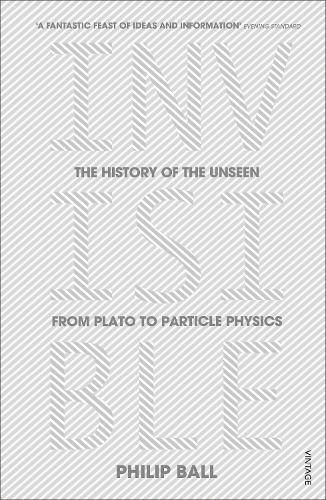
Invisible: The History of the Unseen from Plato to Particle Physics
(Paperback)
Publishing Details
Invisible: The History of the Unseen from Plato to Particle Physics
By (Author) Philip Ball
Vintage Publishing
Vintage
3rd August 2015
30th July 2015
United Kingdom
Classifications
General
Non Fiction
History of science
Optical physics
535.09
Physical Properties
Paperback
336
Width 129mm, Height 198mm, Spine 20mm
268g
Description
The invisible is one of the most enduringly seductive ideas in human history. This is its biography. If you could be invisible, what would you do The chances are that it would have something to do with power, wealth or sex. Perhaps all three. But there's no need to feel guilty. Impulses like these have always been at the heart of our fascination with invisibility- it points to realms beyond our senses, serves as a receptacle for fears and dreams, and hints at worlds where other rules apply. Invisibility is a mighty power and a terrible curse, a sexual promise, a spiritual condition. This is a history of humanity's turbulent relationship with the invisible. It takes on the myths and morals of Plato, the occult obsessions of the Middle Ages, the trickeries and illusions of stage magic, the auras and ethers of Victorian physics, military strategies to camouflage armies and ships and the discovery of invisibly small worlds. From the medieval to the cutting-edge, fairy tales to telecommunications, from beliefs about the supernatural to the discovery of dark energy, Philip Ball reveals the universe of the invisible.
Reviews
As a harvest of fascinating facts delivered with sharp wit and insight, it is hard to fault -- Robert Douglas-Fairhurst * Daily Telegraph *
Intriguing -- John Carey * Sunday Times *
A fascinating compendium Another author might struggle to manage such an esoteric collection [of stories of invisibility] but Mr Balls writing is incisive enough to keep the different elements hanging and working together * The Economist *
Ball marshals his material with deftness and charm * Literary Review *
[A] fantastic feast of ideas and information on the subject In this enthralling book, Philip Balls elegant and intelligent masteryis very evident indeed * Evening Standard *
Author Bio
Philip Ball writes regularly in the scientific and popular media and worked for many years as an editor for physical sciences at Nature. His books cover a wide range of scientific and cultural phenomena, and include Critical Mass- How One Thing Leads To Another (winner of the 2005 Aventis Prize for Science Books), The Music Instinct, Curiosity- How Science Became Interested in Everything, Serving The Reich- The Struggle for the Soul of Science Under Hitler and Invisible- The history of the Unseen from Plato to Particle Physics.
